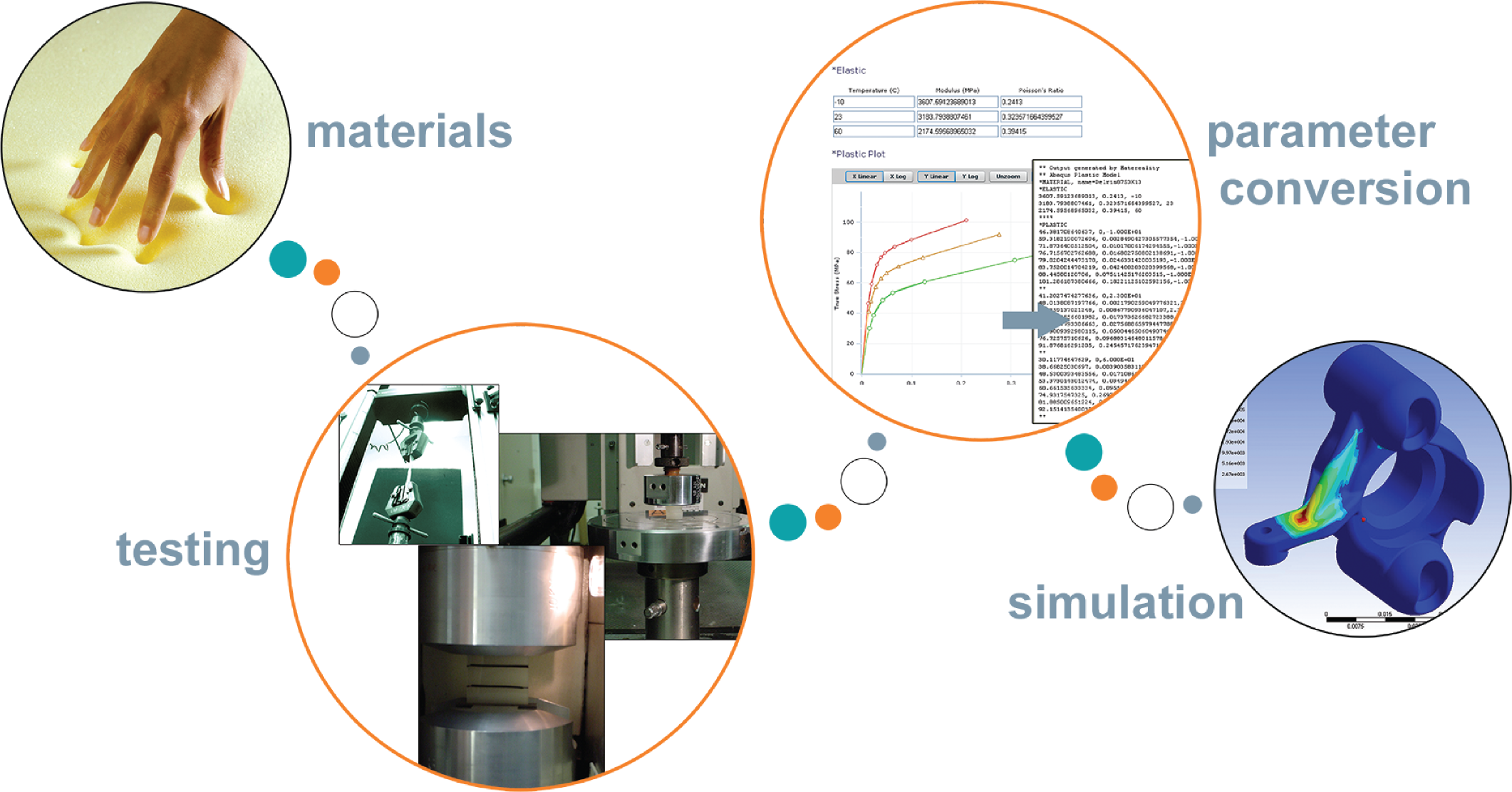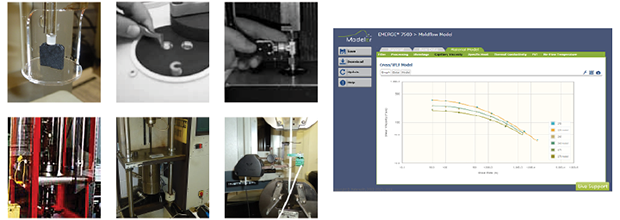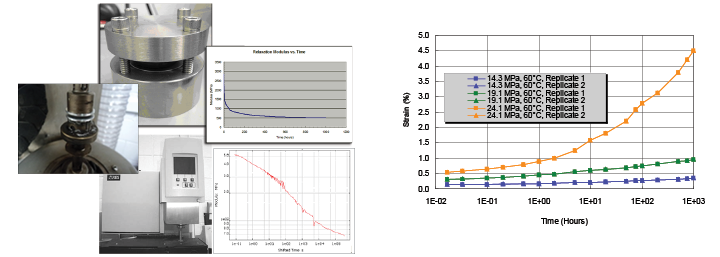Previous
Next
Plastics molding simulation data
Simulations of manufacturing processes such as injection molding, blow molding,
and thermoforming require highly complex, non-linear data inputs, including
viscosity, thermal properties, PVT, viscoelastic, and mechanical properties. We
generate data and analysis-ready material files for all major simulation programs
used in the industry today.
Crash and drop test simulation data
Simulation of crash and impact phenomena require rate-dependent properties. These
are usually stress-strain curves measured over several decades of strain rate. We
provide rate-dependent data and parameter conversion for metals, plastics, rubbers
and foams, and composites, including more complex experiments to model yield
surfaces, advanced plasticity and failure.
Hyperelastic modeling of rubber
A hyperelastic material can be thought of as any type of rubbery material that exhibits
large recoverable strains up to failure. Because such material is highly deformable and
the Poisson’s ratio is nearly 0.5, deforming the material by stretching, compressing,
or twisting in one direction results in a large deformation response in other directions.
This coupling means that the material behavior cannot be predicted using properties
generated in only one mode of deformation. We support all commonly used finiteelement
simulations with multi-mode test data, along with fitting to mathematical
models such as the Mooney-Rivlin or Ogden equations.
Testing of foams
Foams are complex materials, the behavior of which can be tailored for the application
purpose. The most common mode of deformation is by compression. Foams usually
are not strong in tension or shear and are rarely intentionally subjected to deformation
in these modes. Our support for foam modeling includes testing for factors such as rate
dependency, hyperbolic extrapolation for impact simulation, and hyper-viscoelasticity.
Creep, Fatigue, and long term behavior
The modeling of time-based phenomena is gaining widespread use in industry as
analysts try to predict the long term behavior of products. While classical creep
experiments remain the mainstay for this kind of analysis, viscoelastic modeling
provides predictive advantages at small strains for certain types of materials. Creep
rupture experiments are useful to gauge time-dependent failure while cyclic fatigue
data are vital to ensure that products do not fail in the field.
 material testing and parameter conversion for your CAE
material testing and parameter conversion for your CAE
Material testing and material parameter conversion to create material cards for over 30 simulation (CAE) programs, including finite-element analysis, crash and drop-test simulations, injection-molding and other process simulations
TestPaks® unleash the power of your CAE programs
TestPaks Catalog
- TestPaks® are complete- they contain all the measurements and model fitting needed for your simulation.
- TestPaks® are cost-effective and easy to order- they are available for most common material models.
- TestPaks® are self-consistent- properties are generated the same way, every time for a material model.
- TestPaks® are easy to use- CAE-ready material files are deposited into your Material Card Library at Matereality.
TestPaks For Structural Analysis See All
TestPaks For Impact Simulation
TestPaks For Injection Molding CAESee All
TestPaks For Extrusion, Thermoforming, and Blow Molding Simulation See All
TestPaks For PARTNERS See All
TestPaks For OTHER SERVICES Software
TestPaks For digitalization software
 material testing and parameter conversion for your CAE
material testing and parameter conversion for your CAE

































